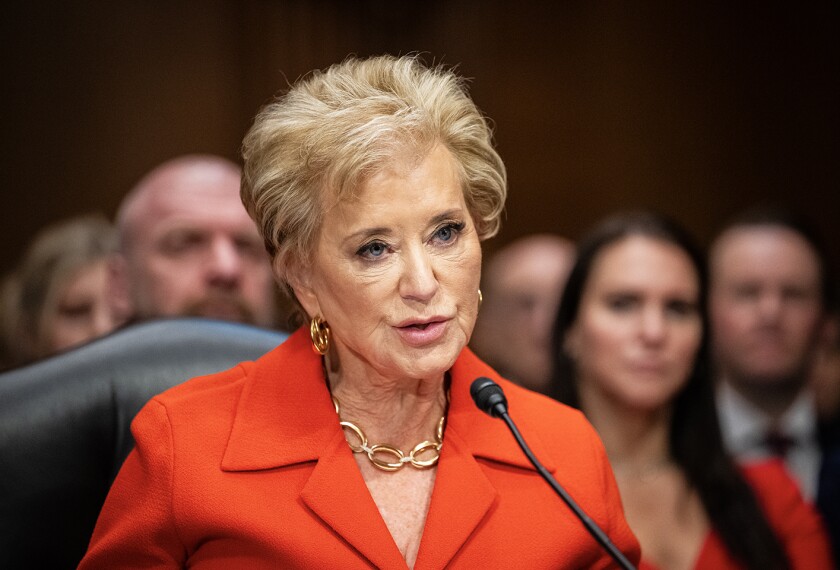Corrected: An earlier version of this story incorrectly identified the sponsor of the report examining the practices of the 10 top performers on the 2003 administration of the Program for International Student Assessment.
The world’s top-performing school systems and those coming up fast have a lesson to teach the others: Put high-quality teaching for every child at the heart of school improvement.
That’s the conclusion drawn by a report that examines the practices of the 10 top performers and another seven rapidly improving systems on the 2003 administration of the international tests known as PISA, or Program for International Student Assessment. PISA is sponsored by the 30-nation Organization for Economic Cooperation and Development.
School system success, the report contends, hinges on getting the right people to become teachers, helping them learn to teach, and crafting a system that ensures every child will get access to the teaching he needs.
Neither resources nor ambitious reforms have been the answer to the need for school improvement, say the authors, Sir Michael Barber and Mona Mourshed of McKinsey & Co., the London-based consulting firm responsible for the report. They point to “massive” increases in spending and popular reforms—prominently, class-size reduction and decentralization of decisionmaking—that have failed, they say, to much budge the needle of student achievement many places.
In contrast, high-performing school systems—such as those in Alberta, Canada; Finland; Japan; New Zealand; and Singapore—“maintained a strong focus on improving instruction because of its direct impact upon student achievement,” according to the report. The same emphasis is part of reforms in seven “rapidly improving” systems, including the American cities of Boston, Chicago, and New York, as well as in England.
The study picks apart the practices that the authors say result in widespread high-quality teaching.
Top-performing systems, for instance, are typically both restrictive and selective about who is able to train as a teacher, recruiting their teachers from the top third of each group leaving secondary school. Teachers are offered good starting compensation, usually on a par with other college graduates, but the status of the profession is at least equally important in maintaining quality, the authors say. Status, they contend, can be boosted by marketing and recruitment techniques.
Once the right people are secured, the top-performing systems help them become first-class teachers by enabling them to learn from each other, widespread coaching of their practice in the classroom, and developing strong school leaders skilled in instruction. Some high-performing systems, the report notes, focus greatly expanded resources on teachers’ first year.
Contrasting Reviews
Finally, Sir Michael and Ms. Mourshed maintain, teaching expertise must be deployed to serve all children in the system according to their needs. Successful school systems set high learning standards for their schools and move in when they are not met, the report says. Monitoring of school performance, according to the study, can be accomplished with both test results and school reviews. Similarly, the authors continue, the best systems are ready and able to identify children who are falling behind, and they provide those students with the teaching that will help them catch up.
High-performing systems “ensure that resources and funding are targeted at those students who need them most,” the authors write. They cite Finland, where each school employs a number of special education teachers, who may help close to a third of all pupils—including those learning the fastest—during the school year.
The report drew almost diametrically opposed reviews from international education experts.
David P. Baker, who has extensively studied the results from international math and science tests, praised the study for clear conclusions that hold the possibility of pushing policymakers in valid directions. He said his own research showed that countries that reduced the spread in teacher quality tended to have higher test scores.
At the same time, the Pennsylvania State University professor said the report might have taken better account of the effects of social disadvantage, which has a profound influence on school performance.
Tom Loveless, a senior fellow in education at the Brookings Institution, a Washington think tank, said the report “needed to define the variables [that affect school performance] and measure them carefully” across systems hitting the full range of performance. Identifying the practices of the better-performing school systems does not mean much if less successful systems do the same things, he said.





